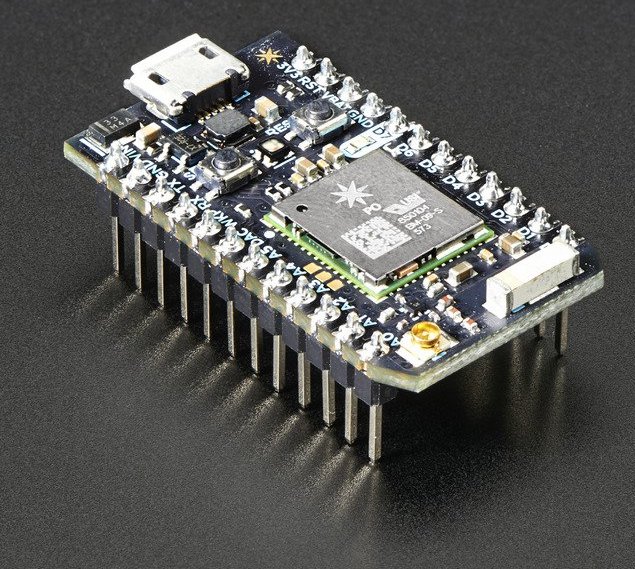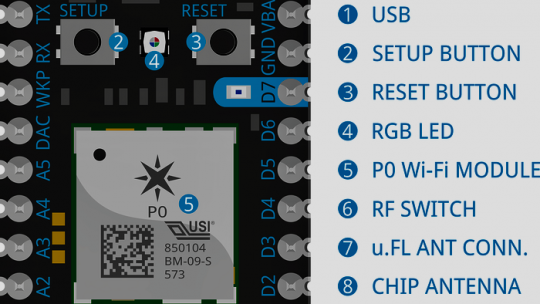The Photon is chunky, and dense: physically and electronically.
The base slab of this board is made from fiberglass and epoxy laminate. It's thick, non-conductive. Electricity is not going to skitter around this surface: it will go where you tell it to go; it will follow the copper paths etched into the surface.
Two rows of tiny burnished copper holes run along the two long edges: 18 holes in all. The same number of spikey "headers" stick out like spindley insect legs.

On top: two nubby buttons (marked RESET and SETUP), inscrutable clusters of upper case letters and numbers in white: 3V3, VIN, RST.
A tiny LED light is buried deep in the swatch of connectors; there's also an antenna connector, a white ceramic block, and a mini-usb connector.
Introduce electricity, and this device can marshall it: it can make it do things.
Any questions? It's all explained on the datasheet, a few dozen different ways, literally. (If the Photon looks different than these pictures, it's because the company has now upgraded the Photon to a Photon 2.)
Dense.
And yet the most powerful thing about it -- its built-in connection to the cloud.
On the Internet:
- Here's a good explanation of what goes into a printed circuit board.
